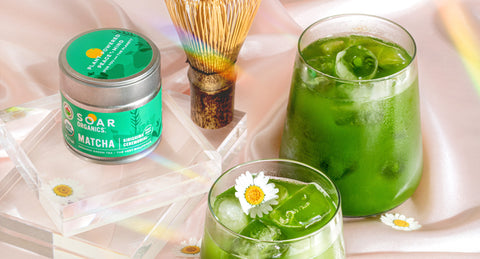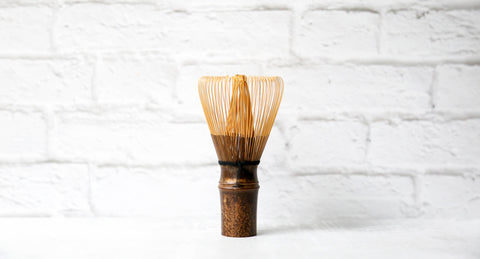Matcha, the vibrant green powdered tea originating from Japan, has captivated the taste buds of tea enthusiasts worldwide. Beyond its stunning color and cultural significance, many are left wondering, "What does matcha taste like?" In this exploration of flavors, we'll delve into the unique characteristics that make matcha a distinct and cherished tea experience.
Rich Umami Flavor:
At the heart of matcha's taste profile is its rich, savory umami flavor. Umami, often described as the fifth taste, is a delightful sensation that adds depth and complexity to the tea. This unique characteristic is a result of the shade-growing process that increases the amino acid content, particularly L-theanine, giving matcha its signature taste.
Sweetness in Every Sip:
Unlike other green teas, matcha carries a natural sweetness that lingers on the palate. This sweetness is intensified during matcha's unique shading process. The combination of umami and sweetness creates a harmonious flavor profile, making matcha a delightful beverage for those with a sweet tooth. For maximum sweetness, we recommend Ceremonial Grade matcha.
Vegetal Notes:
The essence of freshly harvested, young tea leaves infuses matcha with distinct vegetal notes. Some describe it as similar to the taste of spinach or young grass. These earthy undertones contribute to matcha's character, providing a grounded and refreshing experience.
Creamy Texture:
When properly whisked, matcha develops a smooth and creamy texture. This luxurious mouthfeel is a result of the fine grinding process that transforms the tea leaves into a powder. This velvety consistency enhances the overall experience, making each sip a velvety journey for the senses.
Aromatic Bouquet:
Beyond its taste, matcha offers a captivating aroma that engages the olfactory senses. The scent is often described as fresh, grassy, and slightly seaweed-like, reflecting the tea's connection to nature and the meticulous cultivation process.
Bitterness:
While matcha leans towards sweetness, it can also carry a subtle bitterness. The bitterness is usually a result of factors such as the tea's quality, preparation method, and personal preference. When prepared correctly, the bitterness is minimal and complements the other flavors, creating a well-balanced cup of tea. For bold matcha flavors that can cut through other ingredients, we recommend Culinary Grade matcha.
Conclusion:
The taste of matcha is a harmonious blend of umami, sweetness, vegetal notes, creaminess, and a touch of bitterness. This centuries-old tea tradition offers a sensory experience that goes beyond just a beverage. Whether enjoyed as a traditional tea ceremony or incorporated into modern culinary delights, matcha's distinctive taste continues to intrigue and captivate tea enthusiasts worldwide. So, the next time you sip on a bowl of matcha, savor the complex flavors that make this powdered green tea a truly unique and unforgettable indulgence.



